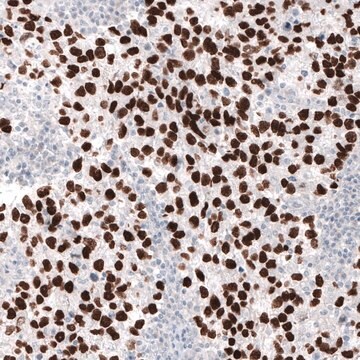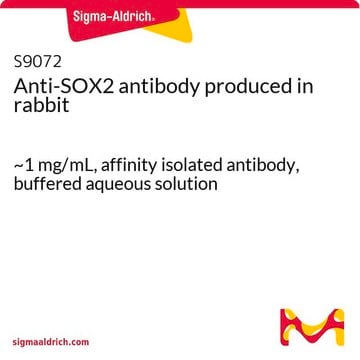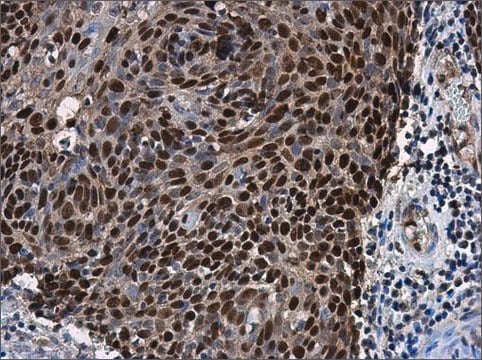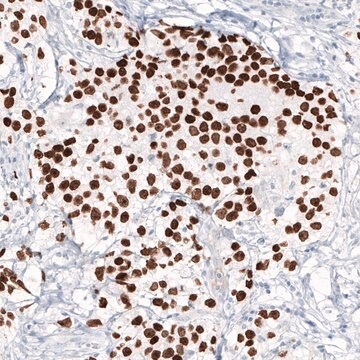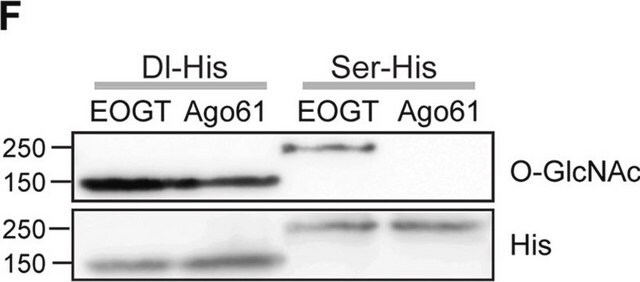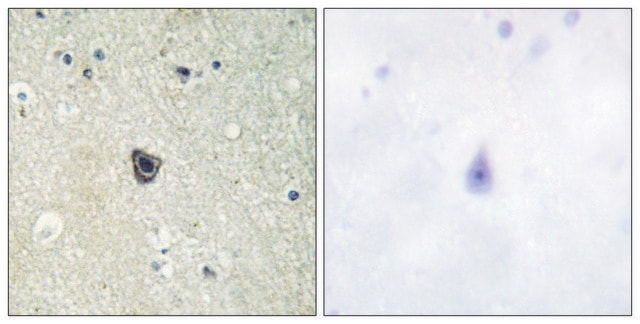SAB5300177
Monoclonal Anti-SOX2 antibody produced in mouse
clone 10F10, ascites fluid
Sinónimos:
Sox-2, Sox2, lcc, ysb
About This Item
Productos recomendados
biological source
mouse
conjugate
unconjugated
antibody form
ascites fluid
antibody product type
primary antibodies
clone
10F10, monoclonal
mol wt
34 kDa
species reactivity
human
technique(s)
direct ELISA: 1:10,000
immunohistochemistry: 1:200-1:1,000
indirect immunofluorescence: 1:200-1:1,000
western blot: 1:500-1:2,000
isotype
IgG1
UniProt accession no.
shipped in
wet ice
storage temp.
−20°C
target post-translational modification
unmodified
Gene Information
human ... SOX2(20674)
General description
Immunogen
Mouse monoclonal antibody raised against SOX2
Application
Biochem/physiol Actions
Physical form
Disclaimer
Not finding the right product?
Try our Herramienta de selección de productos.
Storage Class
10 - Combustible liquids
wgk_germany
WGK 3
flash_point_f
Not applicable
flash_point_c
Not applicable
Certificados de análisis (COA)
Busque Certificados de análisis (COA) introduciendo el número de lote del producto. Los números de lote se encuentran en la etiqueta del producto después de las palabras «Lot» o «Batch»
¿Ya tiene este producto?
Encuentre la documentación para los productos que ha comprado recientemente en la Biblioteca de documentos.
Nuestro equipo de científicos tiene experiencia en todas las áreas de investigación: Ciencias de la vida, Ciencia de los materiales, Síntesis química, Cromatografía, Analítica y muchas otras.
Póngase en contacto con el Servicio técnico

